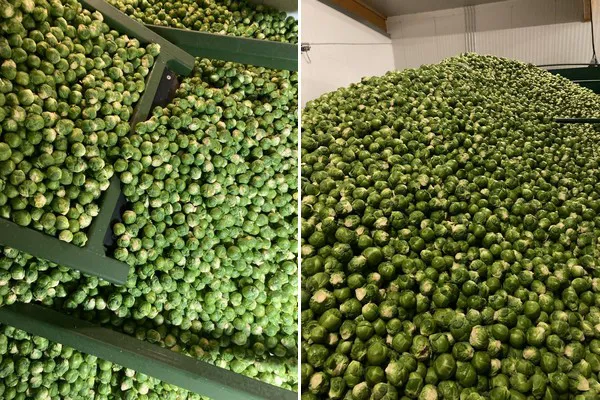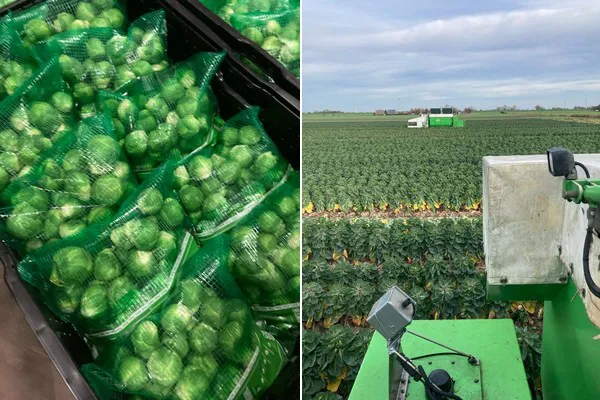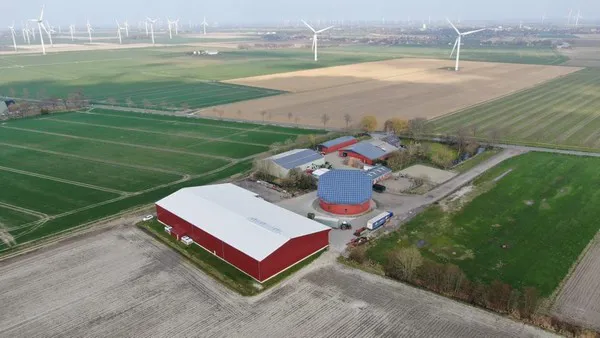After a weaker phase, the marketing of Dithmarschen Brussels sprouts is now visibly picking up again. "We have enjoyed good, steady demand since the start of the season on 20 September. However, from the end of November, there was a noticeable slump in sales, which we couldn't really explain. But at the beginning of the Christmas business, sales picked up again, with several advertising campaigns in food retailing from calendar week 50," summarises Harm Feil, who produces the winter vegetables on around 100 hectares in the heart of the cabbage stronghold Dithmarschen.

The biggest cost driver in Brussels sprout cultivation is the rising minimum wage.
Due to the wet weather, the sprouts were mostly smaller in the first phase of the season. "However, we currently have everything we need to easily meet the high demand for the coarser product (30-41mm) that is so popular in Germany," says Feil, who also supplies smaller quantities to Sweden. Meanwhile, the price level has dropped from 0.95-0.90 EUR/kg to around 0.85 EUR/kg for the common sorting, which is still adequate from the grower's point of view. A further price reduction is not to be expected for the time being.

Despite waterlogging, only one per cent of the total area could not be harvested, whereas last year around 15 per cent of the crops were not marketable. About a quarter of this year's stock is currently still in the ground, Feil further quantified. "Around 20 January, we usually withdraw from marketing, as late marketing is less profitable for us. For this reason, we will also reduce our cultivation capacity by around 10-15 hectares in the coming year, so that we are ready earlier and minimise the risks in cultivation accordingly."

Feil produces vegetables on a total of around 300 hectares, including 100 hectares of Brussels sprouts and 70 hectares of white cabbage.
In addition to Brussels sprouts, the Dithmarschen vegetable growing company also cultivates and sells carrots, cauliflower, white cabbage and pointed cabbage. "The pointed cabbage yields were fine, but cauliflower growing was difficult this year. Due to poor quality, up to a third of our stock was unsaleable at the end, and unfortunately even the high selling price could not fully compensate for these losses. Furthermore, we have steadily increased our white cabbage acreage in recent years, supplying both the fresh food market and industry," he concludes.
Photo credit: Feil Gemüsebau
For more information:
Harm Feil
Feil Gemüsebau
Tel: +49-170-9239963
[email protected]










